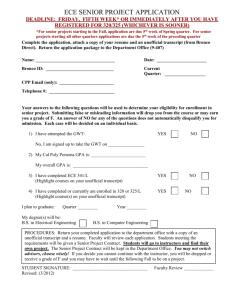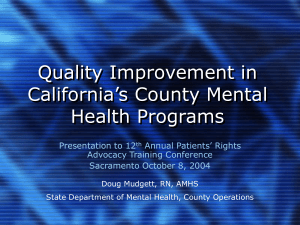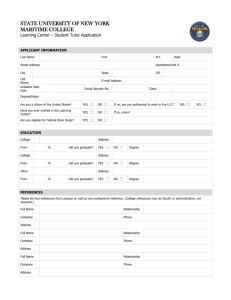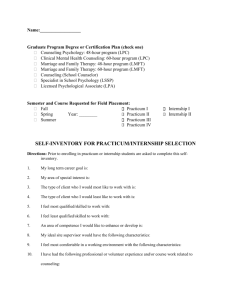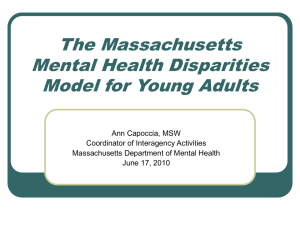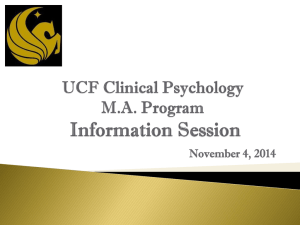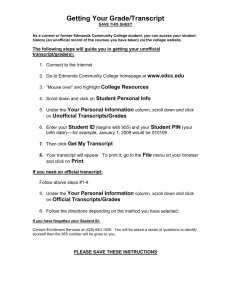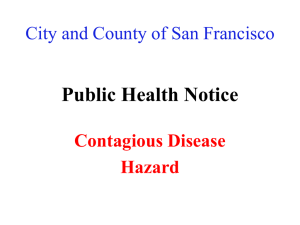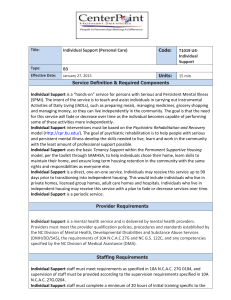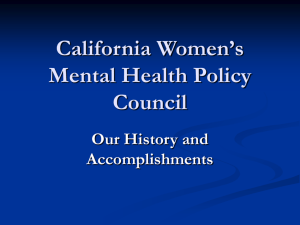Outpatient Behavioral Health, Mental Health
advertisement
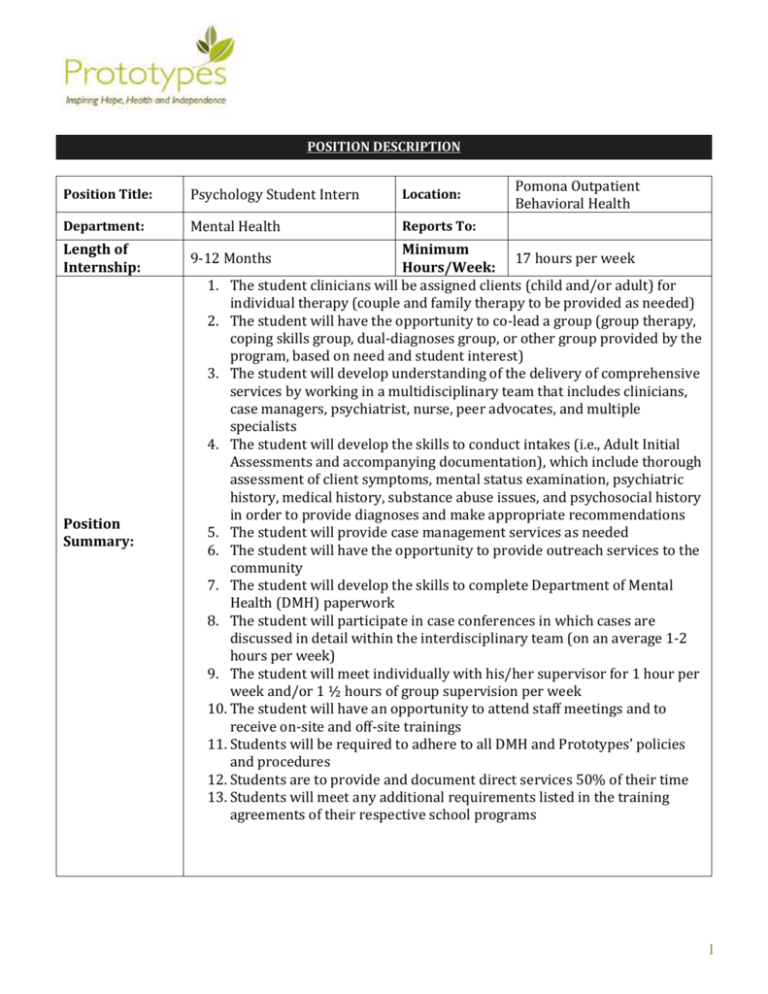
POSITION DESCRIPTION Position Title: Psychology Student Intern Location: Department: Mental Health Reports To: Length of Internship: 9-12 Months Position Summary: Pomona Outpatient Behavioral Health Minimum 17 hours per week Hours/Week: 1. The student clinicians will be assigned clients (child and/or adult) for individual therapy (couple and family therapy to be provided as needed) 2. The student will have the opportunity to co-lead a group (group therapy, coping skills group, dual-diagnoses group, or other group provided by the program, based on need and student interest) 3. The student will develop understanding of the delivery of comprehensive services by working in a multidisciplinary team that includes clinicians, case managers, psychiatrist, nurse, peer advocates, and multiple specialists 4. The student will develop the skills to conduct intakes (i.e., Adult Initial Assessments and accompanying documentation), which include thorough assessment of client symptoms, mental status examination, psychiatric history, medical history, substance abuse issues, and psychosocial history in order to provide diagnoses and make appropriate recommendations 5. The student will provide case management services as needed 6. The student will have the opportunity to provide outreach services to the community 7. The student will develop the skills to complete Department of Mental Health (DMH) paperwork 8. The student will participate in case conferences in which cases are discussed in detail within the interdisciplinary team (on an average 1-2 hours per week) 9. The student will meet individually with his/her supervisor for 1 hour per week and/or 1 ½ hours of group supervision per week 10. The student will have an opportunity to attend staff meetings and to receive on-site and off-site trainings 11. Students will be required to adhere to all DMH and Prototypes’ policies and procedures 12. Students are to provide and document direct services 50% of their time 13. Students will meet any additional requirements listed in the training agreements of their respective school programs 1 Key Result Area 50% Direct Services 10% Meetings 15% Clinical Skill Development Key Responsibilities Facilitate and/or co-facilitate rehabilitation groups and group therapy Provide individual therapy to children and/or adults May provide case management services as needed to meet the needs of the assigned clients Attend team meetings Consult with inter- and intra-agency team Develop clinical skills by way of individual, group, live, audio or video supervision and by experiential work in individual and family therapy sessions. Gain education and experience related to different theoretical orientations, developing treatment goals and interventions, defense mechanisms, countertransference, personality traits and disorders, etc. 25% Quality Assurance Knowledge, Skills & Competencies Required: Become proficient at Department of Mental Health documentation and progress notes. Become proficient at case conceptualization and currently used DSM diagnosis Bachelor’s degree Required Enrolled in PsyD or PhD Program Proficiency in Microsoft Office If start of practicum year the applicant has 72 quarter units or 48 semester/trimester units of coursework, not including thesis, internship, or dissertation, must complete DMH waiver prior to start date and must provide a copy of an official transcript before start date and an unofficial copy at time of application. If start of practicum year the applicant has less then 72 quarter units or 48 semester/trimester units of coursework, not including thesis, internship, or dissertation, must track units each quarter by providing a quarterly transcript and must provide an unofficial transcript at time of application. If applicant meets the unit requirements during the practicum year, they will be required to complete the DMH waiver at that time. Applicants who have delivered clinical services to individuals with trauma histories, severe mental illness, or substance abuse are preferred. Students who have offered some supportive services to such individuals, or who have offered field-based or in-home treatments, may also apply. 2
